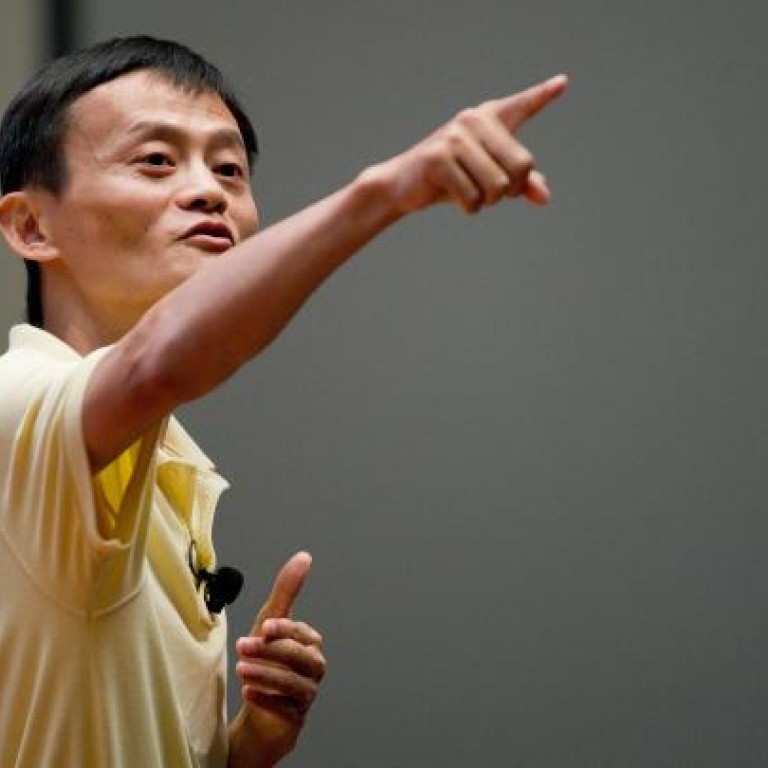
Alibaba founder Jack Ma to focus on mentoring
Jack Ma Yun aims to mould the young staff at the mainland e-commerce giant into world-class leaders as the firm restructures
Jack Ma Yun, the English teacher turned successful internet entrepreneur, caught many by surprise last month when he revealed plans to step down as chief executive of e-commerce giant Alibaba Group on May 10.
That came a few days after Alibaba, which Ma founded in 1999, announced a sweeping restructuring that will divide the group into 25 business units under the direction of two committees, one for strategy and the other for operations.
In an e-mail sent to Alibaba's more than 24,000 employees worldwide on January 15, Ma said he decided to relinquish his position as chief executive because the company had people who "are better equipped to manage and lead an internet ecosystem like ours".
Ma described how he realised years ago that he was not suited to be a traditional chief executive of a big firm.
He said that "at 48 I am no longer 'young' for the internet business". What he aims to be is "a good partner to more capable colleagues", which he intends to accomplish by continuing his role as executive chairman.
Ma described the restructuring as "the most difficult reorganisation" in Alibaba's history. But it is a bet to stay competitive in the mainland's fast-growing e-commerce market. JP Morgan has estimated this market to be worth US$436 billion in 2015.
The move fuelled speculation that Ma was laying the groundwork for Alibaba's initial public offering, which the company has denied.
A person close to the situation said that Ma's decision to step back was not a total surprise, since he had openly discussed the importance of mentoring the company's young staff and moulding them into world-class managers.
"Once a teacher, always a teacher," the person said.
In an article he contributed to the in 2011, Ma wrote: "The priority for the Alibaba Group is to continue working to instil a strong system of values in our young employee base."
The average age of Alibaba's staff was 27 at that time.
"Having values is critical now for China," Ma wrote. "People without a sense of values can make a great deal of money, but they will have an ache in their hearts because they aren't doing things for others, for society."
As an example, he pointed out that all Alibaba employees were strongly encouraged to develop and be active in environment-friendly programmes.
"In China, environmental change will come about only through education," he said.
Nine months ago, Ma further crystallised his intentions.
"Years ago, I made a lot of decisions myself. This year, I make them make decisions," he said in a report in June, referring to the senior managers in charge of Alibaba's various business units.
A report by the same month cited Ma's plan to "enjoy some other things apart from business". Ma has apparently been influenced by the time he has been spending in California's Bay Area, where his son is a student at Berkeley.
"I want people to learn what democracy means," Ma said. He put that into practice by having Alibaba's employees elect 10 representatives who determine how the company spends its annual philanthropy budget.
Alibaba then forged a deal to buy back in stages the 40 per cent stake in the group owned by Yahoo, the US-based internet pioneer.
In July, Alibaba reorganised into seven business units, including its two online retail flagships: business-to-consumer platform TMall and consumer-to-consumer service Taobao Marketplace. The restructuring into 25 business units, each with a general manager, supervised by nine senior executives, will allow Ma to be "more hands on with management development", the person close to the situation said.

